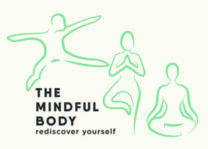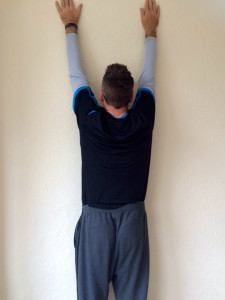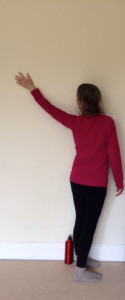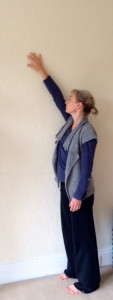On 3 June, I will be running a morning workshop – Releasing Tension in Neck and Shoulders – at Breathe Pilates in Sheffield. This workshop is all about learning to undo tension in the neck and shoulders and find greater ease in moving and reaching. It’s a popular workshop as so many people find themselves dealing with stiff shoulders, tension headaches and a pain when moving the neck – life literally becoming “a pain in the neck”! Where Feldenkrais can help with this is raising awareness of how you sit, stand and reach as well as how you arrange your environment when carrying out long or repetitive tasks. A simple example is the way you sit at your office desk and look at your computer screen. ( Go to http://diannehancock.co.uk/the-feldenkrais-method-in-action/ for a short lesson in how to sit more comfortably at work)
But The Feldenkrais Method isn’t just a physical training discipline, it is also a way to rethink how you feel about yourself. Your own self-image dictates your approach to life, exercise and well-being: poor self-image can often lead to poor or harmful choices about how you go through life. Bound up with self-image are the words we use to describe ourselves and our intentions and these words can reinforce our state of mind. Constantly telling yourself that you are “rubbish” or “failing” only emphasises failure – which is as logical as constantly criticising a baby on their attempts to crawl or walk! Sports scientists have discovered that visualising success, the perfect trajectory and the winning outcome, leads to better achievement. I learnt on my Feldenkrais teacher training to change or avoid words such as “try” “fail” “push” “doesn’t work” and find alternatives such as “interesting” “experiment” and – my favourite – “approximation”. I often work with people who attend gym and fitness classes regularly and are very frustrated by injury. They struggle with the recovery process, mainly because they can’t (or won’t) change whatever they were doing to cause the injury in the first place. In a Feldenkrais session, we try to encourage self awareness, to observe what is happening and perhaps find a different, more “successful” route to achieve flexibility and efficiency. For those who want to be “fixed” and not have to think about it, this is quite a challenge, particularly when they see the injured part of the body as “rubbish” “wonky” “bad”. Recently I had a one to one session with a client who has had ongoing problems as a result of poor and excessive exercise: running without a warm-up, “no pain, no gain” as a constant mantra – habits that he was finally letting go off. Hopefully, he will continue his exploration into better movement through thinking disciplines such as Feldenkrais, mindfulness and yoga and question those practices that talk about “push your body”, “feel the burn” and “push harder”.
The Mindful Body
The Feldenkrais Method in Sheffield



